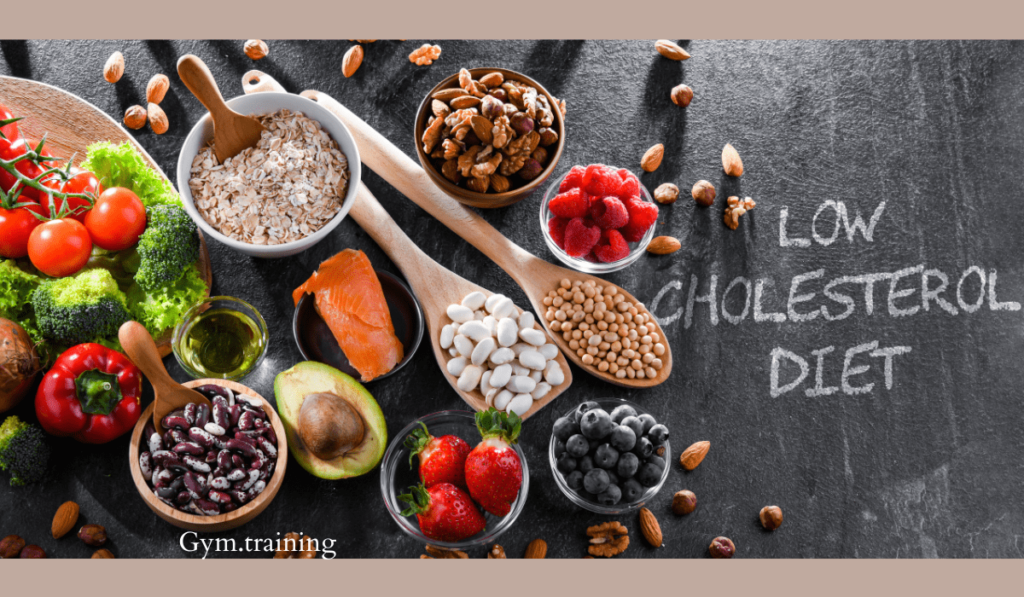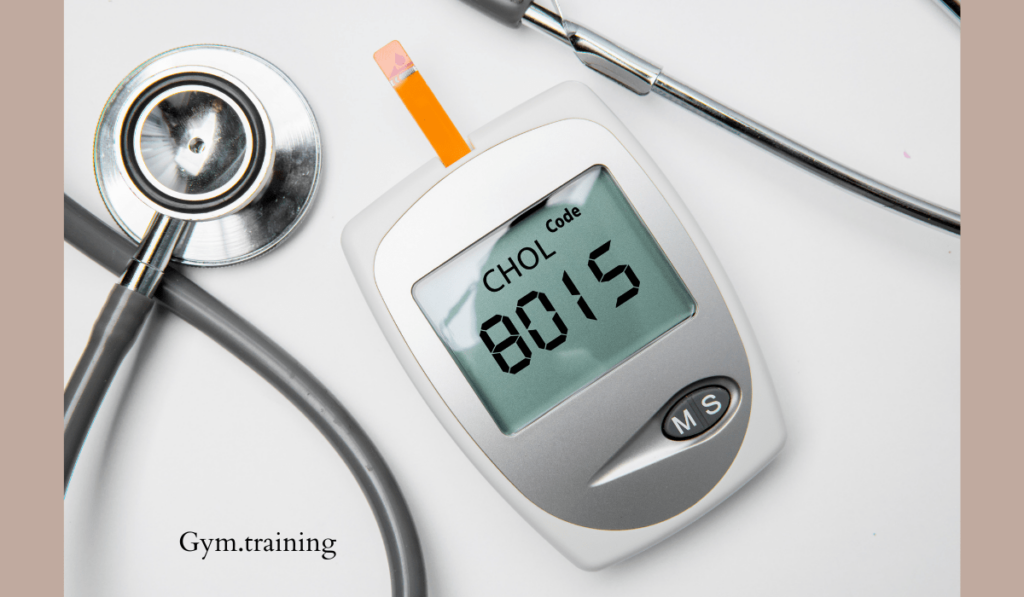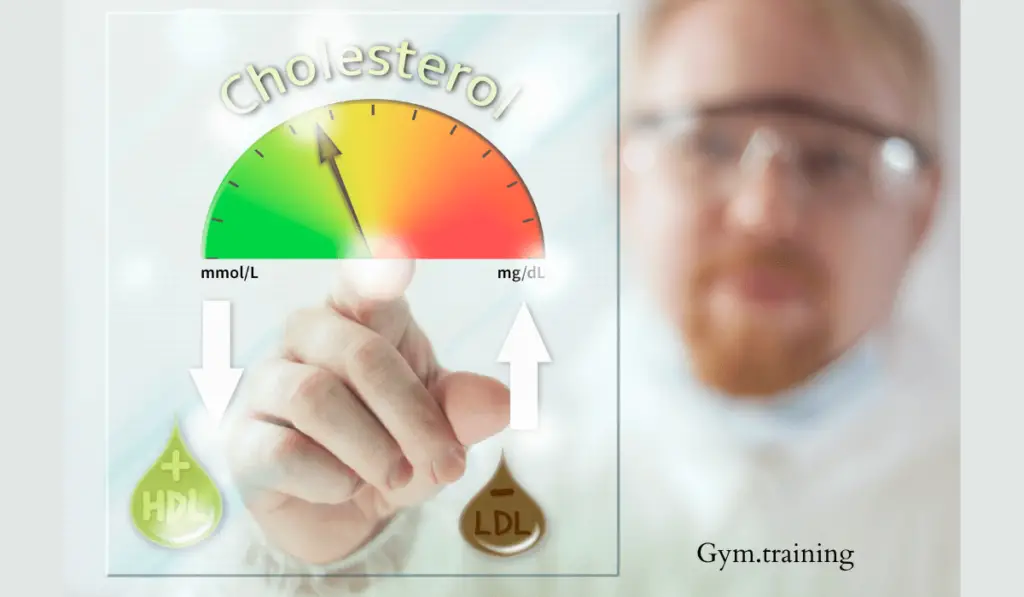
Trying to lower your cholesterol levels is a vital step towards maintaining heart health and preventing cardiovascular diseases. While genetics can play a role, lifestyle modifications and proven scientific methods can significantly impact high cholesterol levels.
To lower your cholesterol levels, it is very important to adapt certain changes for your body. Adopting these strategies can help manage and reduce high levels cholesterol effectively and prevent you from side effects.
Tips To Lower Your Cholesterol
1. Healthy Diet Choices

1. Opt for Healthy Fats
- Monounsaturated and Polyunsaturated Fats: Found in olive oil, avocados, nuts, and seeds, these fats can help lower LDL (bad) cholesterol when used to replace saturated and trans fats.
2. Increase Soluble Fiber Intake
- Fruits, Vegetables, and Whole Grains: These contain soluble fiber that binds total cholesterol in the digestive system, aiding in to lower your cholesterol and its elimination. Oats, barley, beans, and lentils are excellent sources.
3. Incorporate Omega-3 Fatty Acids
- Fatty Fish: Salmon, mackerel, and sardines are rich in omega-3s, which can lower triglycerides and reduce the risk of heart disease.
4. Limit Saturated And Trans Fats
- Processed Foods and Red Meat: These can increase LDL cholesterol levels. Opt for lean meats and reduce intake of fried and processed foods.
2. Regular Exercise
1. Aerobic Exercise
- Brisk Walking, Running, or Cycling: Engage in at least 150 minutes of moderate aerobic activity per week to raise HDL (good) cholesterol and lower LDL (bad) cholesterol.
2. Strength Training
- Resistance Exercises: Building muscle mass can improve cholesterol levels and overall cardiovascular health. It is the best way to lower your cholesterol within less amount of time.
3. Maintain a Healthy Weight
- Calorie Control and Regular Exercise: Shedding extra pounds can positively impact to lower your cholesterol levels, especially reducing triglycerides and LDL cholesterol.
4. Avoid Smoking and Alcohol
1. Quit Smoking
- Smoking can raise LDL cholesterol: Quitting smoking can improve HDL cholesterol the good cholesterol levels and reduces the risk of heart disease.
2. Moderate Alcohol Consumption
- Excessive alcohol can raise cholesterol: Limit intake to moderate levels as recommended by health professionals can be beneficial to lower your cholesterol.
5. Medication as a Supplement

1. Statins and Other Medications
- Prescribed by a Doctor: In some cases, medications like statins may be necessary to manage cholesterol levels, especially when lifestyle changes alone are insufficient.
2. Regular Health Check-ups
- Regular Blood Tests: Schedule routine check-ups to monitor cholesterol levels and assess the effectiveness of lifestyle changes or medications.
- Monitor Cholesterol Levels: Regular checking up on the cholesterol levels and making sure it is normal.
6. Lifestyle as a Fundamental Pillar
Maintaining healthy cholesterol levels is not just a short-term fix; it’s a lifelong commitment to a healthy lifestyle. Integrating these practices into daily routines can yield lasting benefits and help to lower your cholesterol:
1. Meal Planning and Mindful Eating
- Portion Control and Balanced Meals: Plan meals rich in fruits, vegetables, lean proteins, and healthy fats to support cholesterol management.
- Mindful Eating: Pay attention to hunger cues and avoid distractions while eating to prevent overeating.
2. Stress Management
- Stress and Cholesterol: Chronic stress can impact cholesterol levels. Techniques like meditation, yoga, or deep breathing exercises can help manage stress effectively.
3. Social Support and Accountability
- Engage with Supportive Networks: Sharing goals with friends and family, or support groups can provide motivation and accountability in maintaining a heart healthy lifestyle.
4. Education and Awareness
- Stay Informed: Continuously educate yourself on heart health and cholesterol management to make informed decisions and stay motivated.
7. Personalized Approach and Consultation

1. Individualized Plans
- Consult Healthcare Providers: Work with doctors, nutritionists, or health coaches to create personalized plans based on individual health conditions, preferences, and needs.
2. Adherence and Persistence
- Consistency is Key: Adherence to these lifestyle changes is crucial for long-term success in managing cholesterol levels. It may take time to see significant changes, but persistence pays off.
Also Read: Fatty Liver: Causes, Symptoms And Treatments
To lower your cholesterol levels is a multifaceted approach involving dietary modifications, regular exercise, weight management, avoiding harmful habits, blood pressure and, if necessary, medication.
These scientifically proven methods not only lower cholesterol but also contribute to overall heart health and reduce the risk of heart attack and cardiovascular diseases.
It’s essential to consult healthcare professionals before making significant lifestyle changes or starting any new medication regimen to ensure personalized and effective management of cholesterol levels.
Also Read: 11 foods that lower cholesterol
Note:
Embracing a heart healthy lifestyle isn’t just about preventing diseases; it’s about enhancing the quality of life. It empowers individuals to take charge of their health, fostering vitality, energy, and longevity.
Remember, it’s never too late to start. Small, consistent steps towards a healthier lifestyle today can pave the way for a brighter, healthier tomorrow. Always seek guidance from healthcare professionals to tailor a plan that best suits individual needs and health status.
By embracing these scientifically backed methods, individuals can actively take control of their bad cholesterol levels and promotes and helps to keep your heart healthy for a fulfilling life ahead.

Leave a Reply
You must be logged in to post a comment.